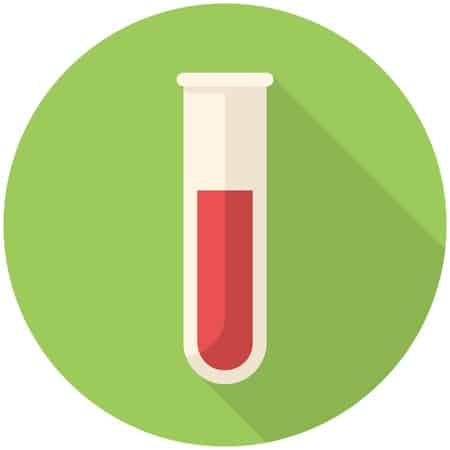
So, you’ve been feeling less than great lately – maybe the first sign was irregular or heavy and painful periods, or maybe it was some weight gain and acne – either way, you know something is wrong and you want to feel better.
You’re thinking it might be hormone-related. What now?
Many women take a trip to their OBGYN and ask for a hormone test. This is a great first step towards treating your health issues. But the results can be confusing and concerning without a little background information and preparation. Knowledge is power! There’s no need to be mystified.
Remember: no result received is static, the diagnosis you get can and will change with the right kind of treatment.
Here are our tips on how to get what you want and need out of hormone testing.
Your visit to the OBGYN:
- Get the test taken during the first few days of your cycle (when you have your period), if possible.
- Ask your OBGYN for a hormone panel test that includes estrogen, progesterone, FSH and LH (follicle stimulating hormone and luteinizing hormone).
- Ask additionally for a thyroid test, blood sugar test (using a glucose meter at home preferably) and Vitamin D3 test. These are also important indicators for hormonal health.
- Ask that they also run a general blood test (the kind you’d get at an annual exam) – you want to be checked for iron saturation, anemia, and C-reactive proteins particularly.
- Ask for a print out of your results to take home if they are not made available online for you to access.
Assessing the results:
- Your hormone levels will fall within a range, indicated on your bloodwork panel.
- If the results come back within the “normal” range, you will want to compare your numbers within the ranges. A number on the higher or lower end of the normal range will be cast as “normal” by your OBGYN, but that number is still the reason you’re experiencing health issues. It means it is not out of range enough to alarm the OBGYN and trigger a medication prescription, but you will be symptomatic regardless. The good news is that you can do something now, before you cross that threshold into “abnormal,” to avoid worsened symptoms and to avoid having to use drugs or devices with side effects.
- Most hormone-related issues women deal with are the result of too low progesterone, too high estrogen levels and excess androgens. This is what is happening when you have PCOS, endometriosis, PMS, and problematic periods, more generally.
Three questions to ask your doctor in the most common scenarios:
- Everything here seems to be normal, but I am experiencing significant symptoms. Where within the range am I falling that might indicate I am moving towards having a hormonal imbalance?
- It looks like my calcium, Vitamin D3 (also other vitamins and minerals) are at a low level. What can I change about my diet to help them improve?
- I see you have recommended I use birth control pills/a Mirena IUD/implant to control my symptoms. I would really like to try giving myself 3-6 months to improve the situation first. What kind of changes in my blood work would you like to see so that I wouldn’t have to use these options?
What next?
- You can follow up on your blood test by using a home saliva testing kit from DiagnosTechs or Phamasan. Testing your hormone levels over a 30-day period via saliva provides far more accurate results than a blood test taken on a single day, and it can help better pinpoint the exact problem. A naturopath or acupuncturist can provide you with a test kit and facilitate you receiving the results. Or you can ask to receive the kit directly from the company and return it yourself for the lab testing and results.
- You can start taking your BBT (basal body temperature) at home to understand if and when you are ovulating. You can learn more about this from Toni Weschler’s, Taking Charge of Your Fertility. An example for charting your temperature is here. A fertility awareness instructor can help you interpret your chart for a diagnosis of your hormonal health issues.
And then:
Once you finally have your results, it can be so motivating. By following the FLO protocol, many women have addressed their hormonal health issues and returned to their OBGYN to receive vastly improved results, without the use of drugs or devices. Click here to watch their stories!
Food should be your first form of self-medication. Once you know where you stand, give yourself 3-6 months to heal your body at home through dietary and lifestyle changes.



